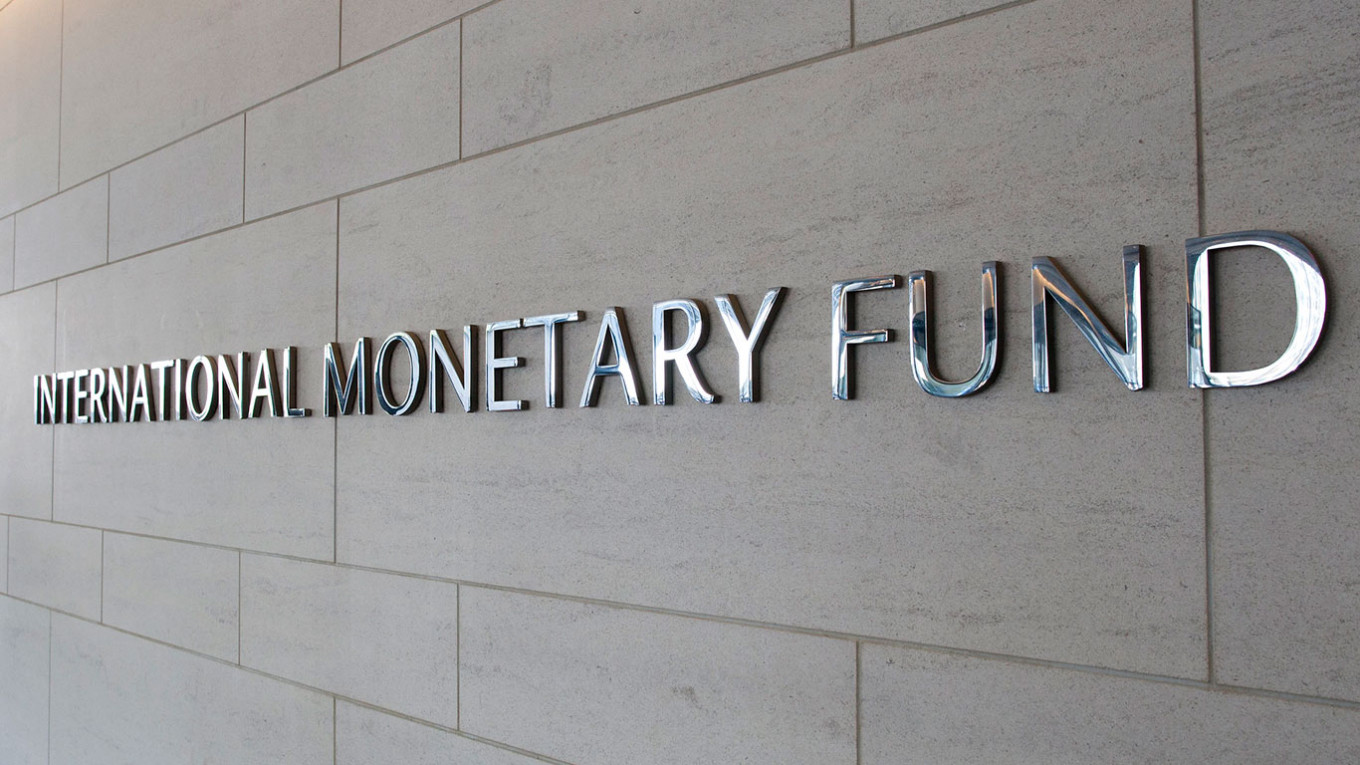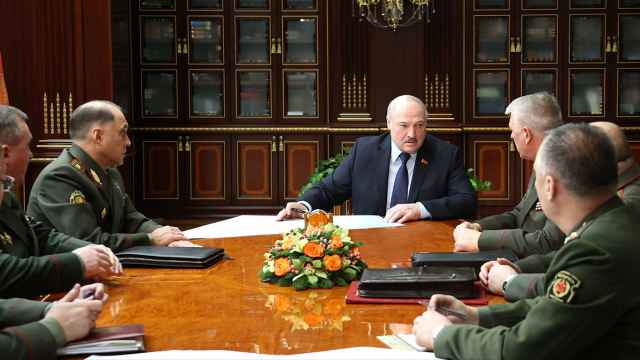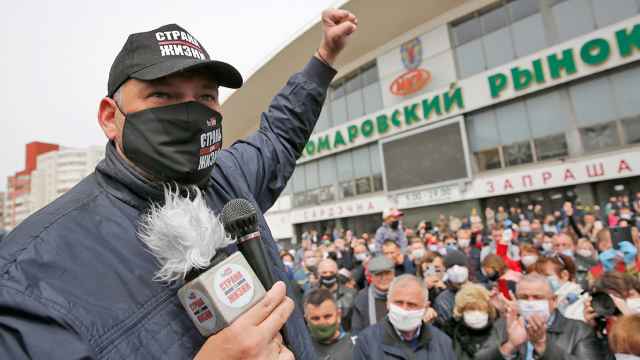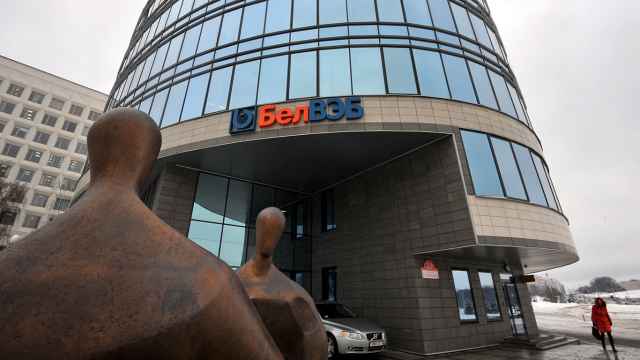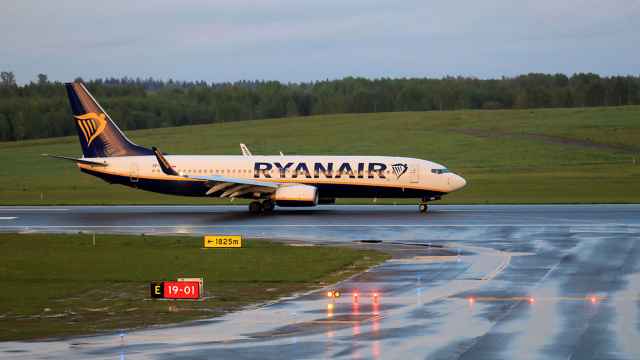The International Monetary Fund (IMF) has allocated Belarus almost $1 billion in reserve funds as part of the body’s unprecedented program to support the global economy as it emerges from the coronavirus pandemic, the IMF said Monday.
The payout comes despite last-ditch attempts by opponents of the embattled Lukashenko regime to block the transaction, fearing it could embolden the strongman leader and further escalate the wave of repression in Belarus.
The program — which is worth $650 billion in total — has seen the IMF allocate so-called special drawing rights (SDRs), an international reserve asset issued by the IMF, to almost every country in the world.
“As is always the case, the IMF is guided by the international community, which continues to deal with the current administration as the government of Belarus,” the organization said in a statement to The Moscow Times. “Like other IMF member countries, Belarus will receive an SDR allocation in proportion to its quota share.”
Russia has also been awarded $17.5 billion under the scheme.
The historic allocation seeks to help poorer countries respond to the economic crisis wrought by the coronavirus. Since these countries are typically unable to launch the kind of large-scale stimulus packages seen in advanced economies due to weaker government finances and higher borrowing costs, the SDR allocation is an attempt to boost liquidity and shore up national reserves.
The last time the IMF allocated SDRs was in 2009, when it distributed $250 billion worth to its members.
The body is pushing wealthier countries to voluntarily donate their allocation of SDRs to poorer nations. The program was signed off in early August and came into force Monday.
Calls to exclude Belarus have grown as the execution date approached, including from U.S. Treasury Secretary Janet Yellen. Belarus opposition leader Svetlana Tikhanovskaya, whom many Western leaders have met in a show of support following last year’s disputed presidential election, also raised the issue in recent meetings with U.S. President Joe Biden and British Prime Minister Boris Johnson.
“The regime will use the $1 billion allocated by the IMF on repression, and not in support of the people,” she said in a tweet.
Afghanistan and Venezuela were not eligible to receive SDRs under the program over the lack of international recognition for each country’s ruling governments.
Washington has said it would refrain from offering hard currency to countries under financial sanctions, a policy which could effectively block Belarus from cashing in its SDRs — which represent a bundle of the world’s major currencies — with the U.S. and its allies.
However, that does not stop Belarus dealing with other countries, like its key backer Russia, to make use of its $940 million allocation, experts said.
“We know already there are zero conditions attached to the SDR allocation,” Timothy Ash, a specialist in emerging market government finances at BlueBay Asset Management, told The Moscow Times.
“Countries themselves are able to determine how they use it, so it can be used for budget financing. And Belarus can swap the allocations with other countries, for example, Russia or China. So the SDRs are quite liquid in effect.”
The allocation represents more than 12% of Belarus’ existing reserves. Opponents of strongman leader Alexander Lukashenko say such a significant cash injection will sustain his regime and provide economic support at a time when Western governments are attempting to cut Minsk off from global capital markets.
For Russia, its SDR allocation of $17.5 billion adds less than 3% to its swelling international reserves, which are already some of the largest in the world.
Moscow has not said officially what it will do with its allocation or whether it will help Belarus access its allocation.
IMF head Kristina Georgieva has said she expects the biggest recipients — which includes Russia — to voluntarily redistribute their allocations to smaller countries.
“The allocation is a significant shot in the arm for the world and, if used wisely, a unique opportunity to combat this unprecedented crisis,” she said in a statement Monday.
“Objectively, Russia does not need additional reserves, and participation in a multilateral program of assistance to poor countries can be beneficial from the point of view of international positioning,” Renaissance Capital economist Sofya Donets told the RBC news site.
Minsk has become increasingly dependent on financial support from Moscow in the face of Western sanctions against its key exporting industries and bans on accessing international financing mechanisms.
A Message from The Moscow Times:
Dear readers,
We are facing unprecedented challenges. Russia's Prosecutor General's Office has designated The Moscow Times as an "undesirable" organization, criminalizing our work and putting our staff at risk of prosecution. This follows our earlier unjust labeling as a "foreign agent."
These actions are direct attempts to silence independent journalism in Russia. The authorities claim our work "discredits the decisions of the Russian leadership." We see things differently: we strive to provide accurate, unbiased reporting on Russia.
We, the journalists of The Moscow Times, refuse to be silenced. But to continue our work, we need your help.
Your support, no matter how small, makes a world of difference. If you can, please support us monthly starting from just $2. It's quick to set up, and every contribution makes a significant impact.
By supporting The Moscow Times, you're defending open, independent journalism in the face of repression. Thank you for standing with us.
Remind me later.



